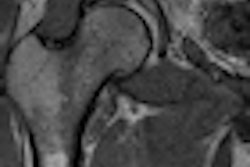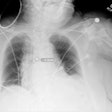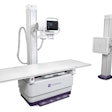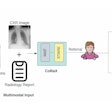Federal authorities in New Hampshire have charged a traveling cardiac cath technologist with infecting patients with hepatitis C after he allegedly stole syringes containing fentanyl and replaced the dirty needles with saline solution. The case has authorities fearing an outbreak of hepatitis C in more than half a dozen states.
David Kwiatkowski, a former employee of Exeter Hospital, was arrested in Massachusetts on July 19 and charged with obtaining controlled substances by fraud and tampering with a consumer product, according to a statement released by the U.S. Federal Bureau of Investigation and the U.S. Attorney's Office for the District of New Hampshire.
In a criminal complaint filed on July 19 in the U.S. District Court of New Hampshire in Concord, Marcie DiFede, an FBI special agent, charged Kwiatkowski with acquiring the anesthetic fentanyl, intended for patients in the cardiac catheterization lab at Exeter Hospital, for his own use. He is also charged with tampering with syringes of the drug by injecting himself and then replacing the fentanyl with another liquid which was then given to patients, exposing them to hepatitis C, the complaint said.
Kwiatkowski worked as a cardiac cath technologist at Exeter Hospital between April 2011 and May 2012. In May, Exeter Hospital discovered that several patients had tested positive for hepatitis C; the New Hampshire Department of Health and Human Services began an investigation, and on July 13 it announced that 30 people who had been treated at Exeter Hospital have tested positive for the virus.
The case has expanded beyond New Hampshire, however, as Kwiatkowski has also worked as a technologist in at least six different states, including Kansas and Maryland.
The Kansas Department of Health and Environment (KDHE) issued a warning on July 20 to patients who underwent cardiac catheterization at the cardiac cath lab at Hays Medical Center (HaysMed) between May and September 2010. Approximately 460 patients had procedures at the HaysMed lab during this time period.
"Due to the fact that Kwiatkowski worked as a contract radiology technician in the HaysMed cardiac catheterization laboratory from May 24, 2010, to September 22, 2010, HaysMed and KDHE are working together to notify all patients who were treated at the cardiac catheterization lab during this time and recommend they receive testing for hepatitis C," KDHE said in a statement.
In addition, Kwiatkowski had previously worked in four Maryland hospitals between 2008 and 2010, according to the Maryland Department of Health and Mental Hygiene (DHMH): Baltimore Veterans Affairs Medical Center, Johns Hopkins Hospital, Southern Maryland Hospital, and Maryland General Hospital.
"Mr. Kwiatkowski is known to have been infected with the hepatitis C virus since at least June 2010," DHMH said. "Whether he was infected prior to this time and was a potential risk to patients in Maryland is not yet known. ... However, out of an abundance of caution, we are recommending that patients who were potentially exposed to healthcare procedures involving Mr. Kwiatkowski be notified and advised to seek testing for hepatitis C."
The U.S. Attorney's Office for the District of New Hampshire is collaborating with the U.S. Centers for Disease Control and the departments of public health in other states where Kwiatkowski worked to address any possible public health implications, according to the FBI's statement.
Kwiatkowski faces up to 20 years in prison for tampering with a consumer product and four years in prison for obtaining controlled substances by fraud. Each offense is also punishable by a fine of $250,000, according to the U.S. Attorney's Office statement. The Attorney's Office and the FBI are attempting to contact all of the potential victims in the case.
The case comes only months after another radiologic technologist pleaded guilty to infecting patients with hepatitis C while working in the interventional radiology department at the Mayo Clinic in Jacksonville, FL.
In May, Steven Beumel of Jacksonville pleaded guilty to one count of tampering with a consumer product resulting in death, four counts of tampering with a consumer product resulting in serious bodily injury, and five counts of stealing fentanyl by deception, according to a May 11 press release issued by the FBI. Beumel faces a maximum penalty of life in federal prison.




















